Clare Mulley
In the past I have sometimes wondered how many books I would read if only someone had the kindness to lock me up. It turns out, this Covid year, not to be so many — but the quality has been high. Amelia Gentleman’s brilliant and devastating The Windrush Betrayal: Exposing the Hostile Environment (Guardian Faber, £10.99) fuelled me with an outrage in no way diminished by David Olusoga’s masterful and hugely compelling Black and British: A Forgotten History(Pan, £12.99). I know I was late to the party for that book but, as statues tumbled, I enjoyed Keith Lowe’s very timely and thought-provoking Prisoners of History: What Monuments Tell Us About History and Ourselves (William Collins, £20). Finally, you can’t beat a bit of Ben Macintyre when in need of distraction, and Agent Sonya(Viking, £25) doesn’t disappoint.
Philip Hensher
A strange year for a reader; and the most compelling literary experience I had was reading every one of Ivy Compton-Burnett’s novels between March and July. The greatest vogue this novelist had was during the war years and in the time of privation afterwards. Reading, without distraction, her penetrating, disillusioned voices in the silence of an immured city was to understand why many of her contemporaries thought her the greatest English novelist of their time. When the climax of Elders and Betters (1944) came, and the small boy asks, ‘with increasing violence’, ‘Have we been through an impossible day through no fault of our own, or have we not?’, it was as if the novelist had understood what was to come, and what her readers would live through. They are currently unfashionable novels — you will hunt for most of them on second-hand books websites — but, as I rediscovered, great masterpieces.
It was a disappointing year for new publications, only partly attributable to the disruptions of Covid. The non-fiction I most enjoyed was Judith Flanders’s A Place for Everything(Picador, £16.99), her history of alphabetical order: an excellent subject, carried out with exemplary care and authority.
Too many novels, praised and rewarded, seemed to have no end in mind other than to impress the reader with the virtue of the author. Even rudimentary technical ability or expressiveness appeared quite dispensable to prize juries. Usually reliable old-stagers, such as Martin Amis, Graham Swift and Anne Tyler, let us down badly. Exceptions were to be found in Maggie O’Farrell’s deeply felt Hamnet (Tinder, £20), Hilary Mantel’s The Mirror and the Light (4th Estate, £25) — the best book of the trilogy — and Petina Gappah’s buoyantly energetic Out of Darkness, Shining Light (Faber, £20).
The very best novel of the year was Adam Mars-Jones’s complex, shifting and sensationally lewd Box Hill (Fitzcarraldo, £10.99) — for once in 2020 a novel written not to make an approved point or demonstrate its author’s virtue but to explore calmly the wildest stretches of human behaviour. Its subject is cruelty, both theatrically performed and executed in reality, without costumes. A masterpiece that Dame Ivy would have been greatly interested by.
Christopher Howse
Apart from 10,000 Not Out (Unicorn, £25), David Butterfield’s satisfyingly fact-stuffed but quirky history of The Spectator, the year has left me in suspense. David Carpenter’s Henry III (Yale, £30), full of good judgment in good prose, takes the story up to the point when the pesky Simon de Montfort ends the king’s personal rule. How he got out of that one awaits volume two. Mayumi Taguchi, John Scahill and Satoko Tokunaga, associates of Japanese universities, bring us Volume I of the first scholarly edition of Caxton’s Golden Legend(OUP, £65) — a bestseller when it came out in 1483, of which 33 copies survive. It starts with Christmas, ‘whan the world had endured fyve thousand and nyne hundred yere’. The mosaic pavement at Westminster Abbey installed by Henry III gives the world 19,683 years to run, so there’s still time for successor volumes.
Jonathan Sumption
There will never be a definitive life of Hitler. The subject is too vast, the man too contradictory and the sources unmanageable. But Volker Ullrich’s biography comes as close as we can reasonably expect. The second and final volume, Downfall: 1939-45 (Bodley Head, £30), which appeared in translation this year, maintains the high standards of writing and scholarship of the first.
The origin of modern totalitarianism is the French Revolution, another subject on which hundreds of books appear every year. But it is worth making time for John Hardman’s Marie Antoinette: The Making of a French Queen (Yale, £20). This is a well- written and sympathetic life of a woman out of her depth in the world of politics, and a good companion piece to the same author’s life of her husband Louis XVI.
Allan Mallinson
I haven’t read many new books this year, but thanks to the pandemic I’ve read many that I hadn’t for decades. Especially Bernard Fergusson’s Beyond the Chindwin, about the first Chindit campaign, published in 1945, and Freddie Spencer Chapman’s The Jungle is Neutral, about SOE in Malaya (1949). Also Field Marshal Slim’s Defeat into Victory (1956), which I seem to read every couple of years. Their prose is as magnificent as the narratives, casting into deep shade so much military history published lately. But of course they’d been there.
One shining exception is the second of Daniel Todman’s two-part history of Britain and the second world war: Britain’s War:
A New World, 1942-1947 (Allen Lane, £35). It puts into wider context what Fergusson, Chapman and Slim wrote about, as well as everything else after the ‘turn of the tide’, and the unfinished business when shooting stopped. Comprehensive, lucid and perceptive: 1,000 wryly and energetically written self-turning pages.
Robert Douglas-Fairhurst
This hasn’t been a vintage year for fiction — plenty of novels that are woke, few that might keep anyone awake — with Martin Amis’s autofiction Inside Story (Cape, £20) being the exception. In biography it has been a far more interesting story. Along with A.N. Wilson’s bold, quirky The Mystery of Charles Dickens(Atlantic, £17.99), the best things I read this year were the second volume of William Feaver’s The Lives of Lucian Freud (Bloomsbury, £35), which is crammed with enough jaw-dropping, buttocks-clenching revelations to keep a whole Soho pub entertained for days, and Hermione Lee’s sympathetic but sharp-eyed Tom Stoppard (Faber, £30), which manages the neat trick of showing how Stoppard became the writer he is without ever trying to explain him away. These books prove that while truth may not be stranger than fiction it can be far more gripping.
Naomi Alderman
Alan Jacobs’s Breaking Bread With the Dead: A Reader’s Guide to a More Tranquil Mind (Profile Books, £12.99) should be on everyone’s reading list in these times of what a friend of mine calls ‘disagreement-phobia’ on all sides in politics and life. Jacobs thoughtfully discusses the benefits of reading long-dead authors — even though Edith Wharton was an anti-Semite and David Hume a racist. In this way we practise encountering minds different, and sometimes objectionable, to our own, and find the good, useful and beautiful admixed with the difficult and repulsive. Right and left, young and old, we need this skill more than ever now.
For purely joyful reading, Susannah Clarke’s Piranesi(Bloomsbury, £14.99) is a delight — as if Borges wrote a novel with a beginning, middle and satisfying end. And Jack Monroe’s Good Food For Bad Days (Bluebird, £7.99) is an inspiration in creating comfort from not much in dark and difficult times.
Mark Mason
In The Gran Tour (Icon, £14.99), the 33-year-old Ben Aitken joins pensioners’ coach trips to see what he can learn. At first there’s confusion (one woman thinks he’s French: ‘You looked like someone who’d go on strike a lot’), but the final result is both moving and hilarious. In Pitlochry, Kitty gets cross with Monica because she won’t do sambuca shots at lunchtime.
Martin Latham’s The Bookseller’s Tale (Particular Books, £16.99) examines the history of our love affair with books. Apparently Melvil Dewey, the inventor of the Dewey Decimal system used in libraries, was so obsessed with the number ten that he always slept for ten hours and wrote ten-page letters. Latham himself is the manager of Waterstones in Canterbury, where he once hosted a talk by Antonia Fraser. Her mobile went. ‘Hello, Harold,’ she said, ‘yes, I’m in a talk. No, I’m giving it, darling.’
Cressida Connolly
Something in the ether seems to be leading to a crop of books — all excellent — about birds and grief. I absolutely loved Charlie Gilmour’s debut, Featherhood (Weidenfeld & Nicolson, £16.99). It’s a memoir about a delinquent baby magpie which comes into his care, and the troubled relationship Gilmour had with his absent (now late) biological father, the poet Heathcote Williams. Touching and true, with flashes of black humour, it’s a fascinating story. It’s also a brilliant examination of nature vs nurture. Gilmour is certainly a born writer.
In fiction, Small Pleasures by Clare Chambers (Weidenfeld & Nicolson, £14.99) was blissful. And Anne Tyler’s Redhead by the Side of the Road (Chatto, £14.99) was a timely reminder of what matters: kindness and love.
If a little log-rolling is allowed in this peculiar year, I’d add two books by friends: Craig Brown’s One Two Three Four (4th Estate, £20), a masterly and often hilarious study of the Beatles, and Polly Samson’s A Theatre for Dreamers (Bloomsbury Circus, £14.99), a coming-of-age story which slyly interrogates the creative battle of the sexes while transporting you to the beauty of a Greek island in summer. And if anyone wants to buy me a Christmas present, please send The Mystery of Charles Dickens by A.N. Wilson (Atlantic, £17.99).
Frances Wilson
Aunts make good copy, and Ferdinand Mount has never written a bad sentence, so his account of investigating the murky past of his Aunt Munca (she named herself after the vandalising mouse in Beatrix Potter) is bound to be a winner. Kiss Myself Goodbye: The Many Lives of Aunt Munca (Bloomsbury, £20) is a horribly funny tragedy about bourgeois aspiration in the first half of the 20th century. All of life is here: double bigamy, David Dimbleby, Wallis Simpson, the Grand Prix and county cricket. At the heart of it all is Munca, the magnificently amoral millionairess who pretends that her son is her brother, that her adopted daughter is her birth child, that her sister is her friend and that her father (a Sheffield steel merchant) was an American banker called Baring. Her multiple deceptions, and Mount’s dazzling exposure of them, should introduce a new word to the language: from now on the art of pulling the wool over our eyes will be known as ‘doing a Munca’.
Daniel Swift
I know the old warning against judging books by their covers, but my most pleasurable reading moments this year have all been with books in elegant matching trim. For my book of the year I’d like to name a publisher instead: Fitzcarraldo Editions, quality purveyors of superb and off-kilter fiction (in blue) and non-fiction (in white). I would read anything they offered, and if I have to choose one, I loved Suppose a Sentence by Brian Dillon (£10.99). It’s pleasingly nerdy: a collection of short essays, each on a single sentence, each mixing close reading, biography and the occasional dazzling flash of insight into the pure pleasure of reading and why we bother to do it at all.
Stephen Bayley
There have been optimal conditions for reading since March, but the fretfulness of the Great Isolation made, at least for me, concentration difficult. Then I checked Waterstones’ bestsellers and realised there may be other reasons I bought so few books this year. But Craig Brown’s One Two Three Four (4th Estate, £20) was delicious genius. Irreverent, yet admiring; ironic, but not snarky.
I may be the last person to have discovered Curtis Sittenfeld. Rodham (Doubleday, £16.99), her what-if about Hillary, did not get as much attention as it deserved, but Sittenfeld newcomers can also enjoy You Think It, I’ll Say It (Black Swan, £8.99). These are stories (and I never thought that I would write this) with a feminist perspective that fizz with intelligence, smart observation and darkly dry humour.
Zephyr Teachout is another powerful American woman. Break ’Em Up (St Martin’s Press, £22.99) is a trenchant attack on Big Tech and Big Ag. She’ll always be remembered for the coinage ‘the chickenisation of America’, referring to the atrocious anti-social and monopolistic practices of US meat processors. She starts off at pace but soon gets lost in hard-to-read legalese. Still, an important book.
Peter Frankopan
I loved The Sandpit by Nicholas Shakespeare (Harvill Secker, £16.99), a masterful thriller that blends in Oxford and Iran. Judith Herrin’s Ravenna (Allen Lane, £30) is an erudite but wonderfully readable over-view of the life of a city that is often ignored, forgotten or misplaced. Scott Levi’s The Bukharan Crisis(University of Pittsburg Press, £25) provides a masterful account of the pressures on the Bukharan khanate in the 18th century — and the significance it had not only for the region but beyond. It revolutionises how we should understand Central Asia in a period when attention is usually focused elsewhere. I’ve also greatly enjoyed Rana Mitter’s China’s Good War (Belknap Press, £22.95), which provides a timely insight into how memories and ideas about the second world war play a hugely important role in conceptualisations about the past and the present in contemporary China.
Anna Aslanyan
‘Those tall high-rises on the edge of town where the lights went out slowly in the night, flat by flat, window by window’ is the central image of Dark Satellites, a short story collection by Clemens Meyer, translated from German by Katy Derbyshire (Fitzcarraldo, £12.99). Meyer’s snapshots of urban life — a burger bar, a fairground wheel, a neglected train station — are so vivid they make you see your own surroundings in the light of those faraway buildings. An even longer perspective of European urbanity can be gained from Brian Ladd’s The Streets of Europe (University of Chicago Press, £18), which examines the city of the past. Covering the period up to 1900, this study takes you through the ages to the dawn of the modern technological era, bringing into new focus the streets you walk today.
Jenny Colgan
I really liked Who They Was by Gabriel Krauze (4th Estate, £14.99). It was uncompromising but wasn’t a pose. Also the slang was beyond both me and my dictionary, which was exciting. Red Pill by Hari Kunzru (Scribner, £14.99) took me completely by surprise. I had absolutely no idea where he was going with it. Broken Greek by Pete Paphides (Quercus, £20) felt like reading my own childhood. House of Correction by Nicci French (Simon & Schuster, £14) was my favourite thriller, and Craig Brown’s One Two Three Four (4th Estate, £20) felt like it should be put on prescription to cheer up the nation.
I disagreed with the Booker panel’s decision not to shortlist Hilary Mantel’s The Mirror and the Light (4th Estate, £25), but it scarcely matters: that book will still be read and adored when every single last one of us has turned to dust. My absolute favourite book by miles was Piranesi by Susannah Clarke (Bloomsbury, £14.99). It took root in me.
Craig Raine
Stephen Knight’s Drizzle, Mizzle, Downpour, Deluge (CB Editions, £8.99) has a laconic elegy to his German mother Helma Lydia Knight. It is a remarkable poem, exemplary in its courage — an unflinching portrait of a difficult, blunt woman, not so much beloved as essential, and her difficult end. It is addressed to the American poet Mary Oliver and is a tart answer to the high-minded pieties that often pass for poetry. Knight has inherited his mother’s toughness. He records her orthopaedic chair, the walking-frame, the Warfarin, the chiropodist, the hairdressers, the painful banality of decline. It is unsparing and brilliant. And it includes an extended metaphor about rainfall which ends: ‘I swore in the rainfall’s face/ I raised a hand to the rainfall // then hid behind this metaphor’. Guilt: the courage of his convictions. Sometimes it is important that poetry doesn’t take the Fifth Amendment.
Sara Wheeler
Andrew Adonis’s Ernest Bevin (Biteback, £20) was so enjoyable I sought out biographies of other members of the 1945 government, including Ben Pimlott’s accomplished Hugh Daltonand Francis Beckett’s gripping Clem Attlee. As lockdown wore on, these figures grew in stature at the same rate that our own political leaders shrank to pygmies. I also recommend Sophy Roberts’s The Lost Pianos of Siberia(Doubleday, £16.99), an account of dogged journeys through Siberia from the Urals to the Sea of Okhotsk in search of a piano for a gifted Mongolian soloist. The aim? To see if and how a historic piano ‘would sound different in the steppe’. Roberts’s pages sing like a symphony.
Peter Parker
I hugely admired and enjoyed Sebastian Barry’s A Thousand Moons (Faber, £18.99). A sequel to the astonishing Days Without End, it is set in Tennessee in the lawless aftermath of the American civil war. The narrator is Winona, the young Lakota orphan adopted by the earlier book’s two protagonists (and lovers), Thomas McNulty and John Cole. Barry once again slips effortlessly into a voice from a distant time and place, and every sentence sings. Despite a good deal of horrific violence, the novel celebrates survival and the power of love in its many forms — and is, incidentally, a very good advertisement for gay parenting.
Church-crawling this summer was regularly stymied by Covid closures, so Alec Hamilton’s Arts & Crafts Churches (Lund Humphries, £45) was particularly welcome. A beautifully written and designed gazetteer, illustrated in colour throughout with the author’s own excellent photographs, it provides detailed information, lively anecdotes and firm opinions in equal measure.
Daniel Hahn
I was pretty much in love with its main character by page four, and I was confident it would be one of my books of the year by about page ten. (It also made me cry on a train.) The book is Mayflies by Andrew O’Hagan (Faber, £14.99). It’s about friendship and music and courage, about loss and what it means to escape one’s past and live a good life. I think it’s spectacular.
There’s something particularly thrilling about discovering a great debut, and none this year could be more electric than Paul Mendez’s Rainbow Milk (Dialogue, £14.99). Sex, blackness, class, religion, male bodies, self-understanding and finding a community are all explored in new ways with startling assurance for a first-timer. I suspect book two will be very different, and I can’t wait to see it.
I’ve also just been introduced to the first two stunning children’s books by Katya Balen, both published by Bloomsbury: The Space We’re In (£6.99) and October, October (£12.99). If you have a middle-grader, or know one, or are one — or if you simply like a good story and don’t have some unfortunate prejudice against children’s books — treat yourself.
Boyd Tonkin
Ali Smith’s Summer (Hamish Hamilton, £16.99) rounded off her topical but visionary seasons quartet, each novel yoked to our national, and global, moment, yet grounded deep in history, nature, art. Jonathan Bate’s Radical Wordsworth (William Collins, £25) united narrative pulse and scholarly heft to make a commanding case for an earlier seer. Nicolas Mathieu’s Goncourt-winning And Their Children After Them, translated by William Rodarmor (Sceptre, £16.99), winningly wove people, place and time into a lyrical, almost-Lawrentian saga of left-behind France.
Linn Ullmann transcended autofiction with her droll, artful, heartfelt book about growing up with her parents, Liv Ullmann and Ingmar Bergman, Unquiet, translated by Thilo Reinhard (Hamish Hamilton, £12.99). Another memoir-fiction hybrid, Martin Amis’s Inside Story (Cape, £20), gathers memories, ideas, friends, obsessions and vocabulary into a Bumper Book of Mart. Yes, it’s sometimes bloated, vain, cranky — but what a gift, what a feast.
Roger Lewis
What with one thing and another, this year I had leisure to revisit a few old novels, all published between 1976 and 1981: Brian Moore’s The Doctor’s Wife, Rose Tremain’s Letter to Sister Benedicta, Susan Hill’s A Change for the Better and Anita Brookner’s A Start in Life. What struck me is that nobody today seems capable of writing such clear, forthright and intelligent English prose — prose that gives pleasure. Everything now is cramped and timid, fearful perhaps of social media reprehension. Universities and publishers are certainly not doing their bit for knowledge and perspicacity. Look at the way Woody Allen’s autobiography Apropos of Nothing (Arcade, £40) was vilified, cancelled and eventually grudgingly printed by an obscure press. Having enjoyed it, I am perfectly willing to believe Mia Farrow is the bigger villain — ‘a sanctimonious witch, impatient, with a fierce temper’.
A.N. Wilson
The Windsor Diaries, 1940-45by Alathea Fitzalan Howard (Hodder & Stoughton, £25). Penned by a Catholic romantic who dreamed herself of marrying into European royalty, these are the wartime journals of a girl slightly older than the little princesses. She dubbed Royal Lodge, Windsor Le Petit Trianon, and she must be seen as the Saint-Simon of Lilibet’s adolescence. Instead of the court intrigues of Versailles, we have bike rides, games of racing demon and Alathea’s yearnings, both to be loved by
a man and to be ‘in’ with the royal family. Far too old for dancing lessons with little girls, or ‘activities’ with the girl guides, she goes through the motions, in order to be near the princesses. (‘My patrol is going to be called Blue Tits’.) She worshipped Lilibet, but saw her with the unsparing eyes of an unhappy, frustrated, lonely girl: so we have comments on the future monarch’s awkwardness in company, lack of imagination and ‘enormous chest’. A wonderful book.
Mark Cocker
The Book of Trespass by Nick Hayes (Bloomsbury, £18) mingles enormous courage and intellectual clarity in its exploration of the lack of modern public access to the English countryside. One third of land still belongs to the aristocracy, while 24 non-royal dukes own almost four million acres. What is perhaps more unexpected is how this serious book is both a devastating exposure of land inequality and also an absolute delight to read.
Curious About Nature: A Passion for Fieldworkedited by Tim Burt and Des Thompson (CUP, £29.99) is technically a survey of modern environmental research. Yet it is also a fascinating and profound inquiry into the importance to everyone of being inquisitive as a life skill and — in times of modern crisis — a life saver. As one contributor tellingly observes: ‘If curiosity killed the cat, I say only the cat died nobly.’
Andrew Lycett
I admired Featherland by Charlie Gilmour (Weidenfeld & Nicolson, £16.99). Notorious for dancing on the Cenotaph in a 2010 demonstration, Gilmour carries off the near-impossible task of explaining his outlandish behaviour through this absorbing account of his attempts to engage with his wayward biological father, the poet and activist Heathcote Williams — all offset by his nurturing of a fledgling magpie and the arrival of his own daughter. It’s written with economy, insight and rare beauty — a perfect nature memoir for our times.
I was also grabbed by Indian Sun, Oliver Craske’s engaging biography of the sitar master Ravi Shankar (Faber, £20). Firmly grounded in Shankar’s music and culture, it is both accessible and revealing, in keeping with its subject’s divergent principles of tradition and fusion.
For pure escapism I recommend Charles Cumming’s Box 88 (Harper-Collins, £14.99), a wonderfully taut, exciting and up-to-date spy thriller.
Got something to add? Join the discussion and comment below.
Get 10 issues for just $10
Subscribe to The Spectator Australia today for the next 10 magazine issues, plus full online access, for just $10.
More Books of the Year next week.
You might disagree with half of it, but you’ll enjoy reading all of it. Try your first month for free, then just $2 a week for the remainder of your first year.

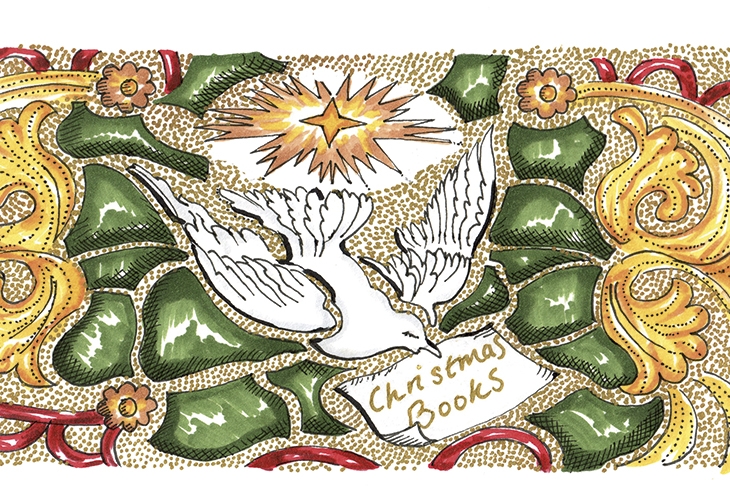
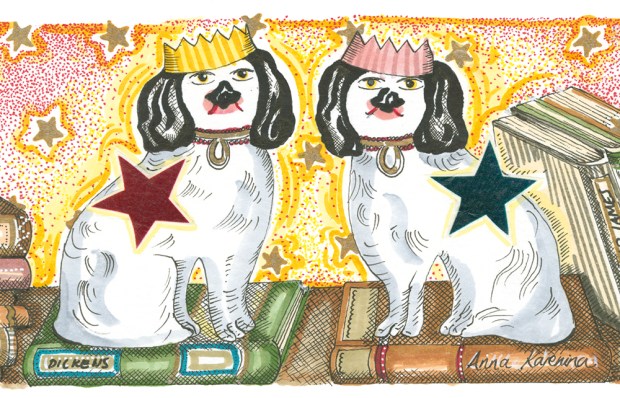
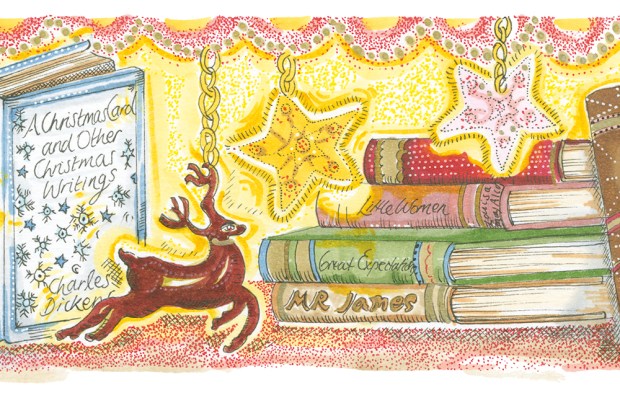
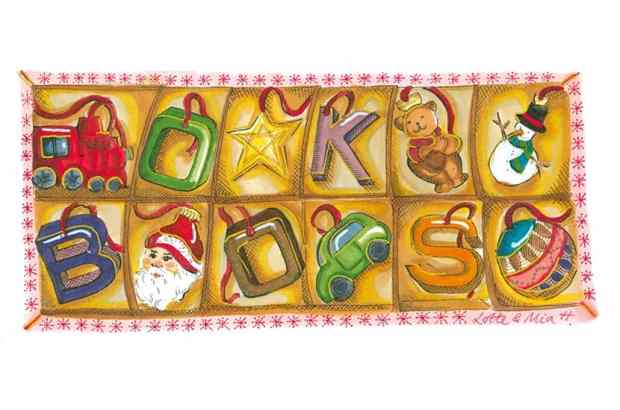

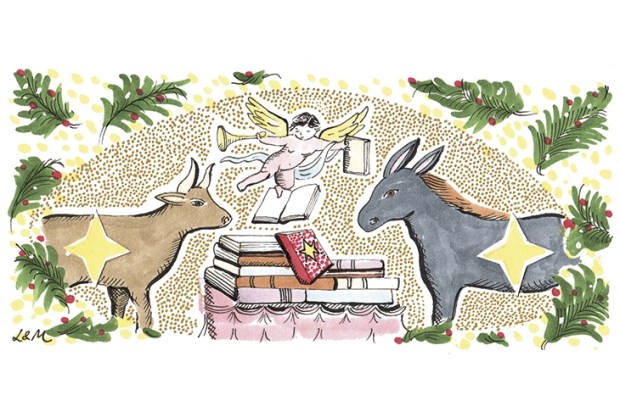







Comments
Don't miss out
Join the conversation with other Spectator Australia readers. Subscribe to leave a comment.
SUBSCRIBEAlready a subscriber? Log in